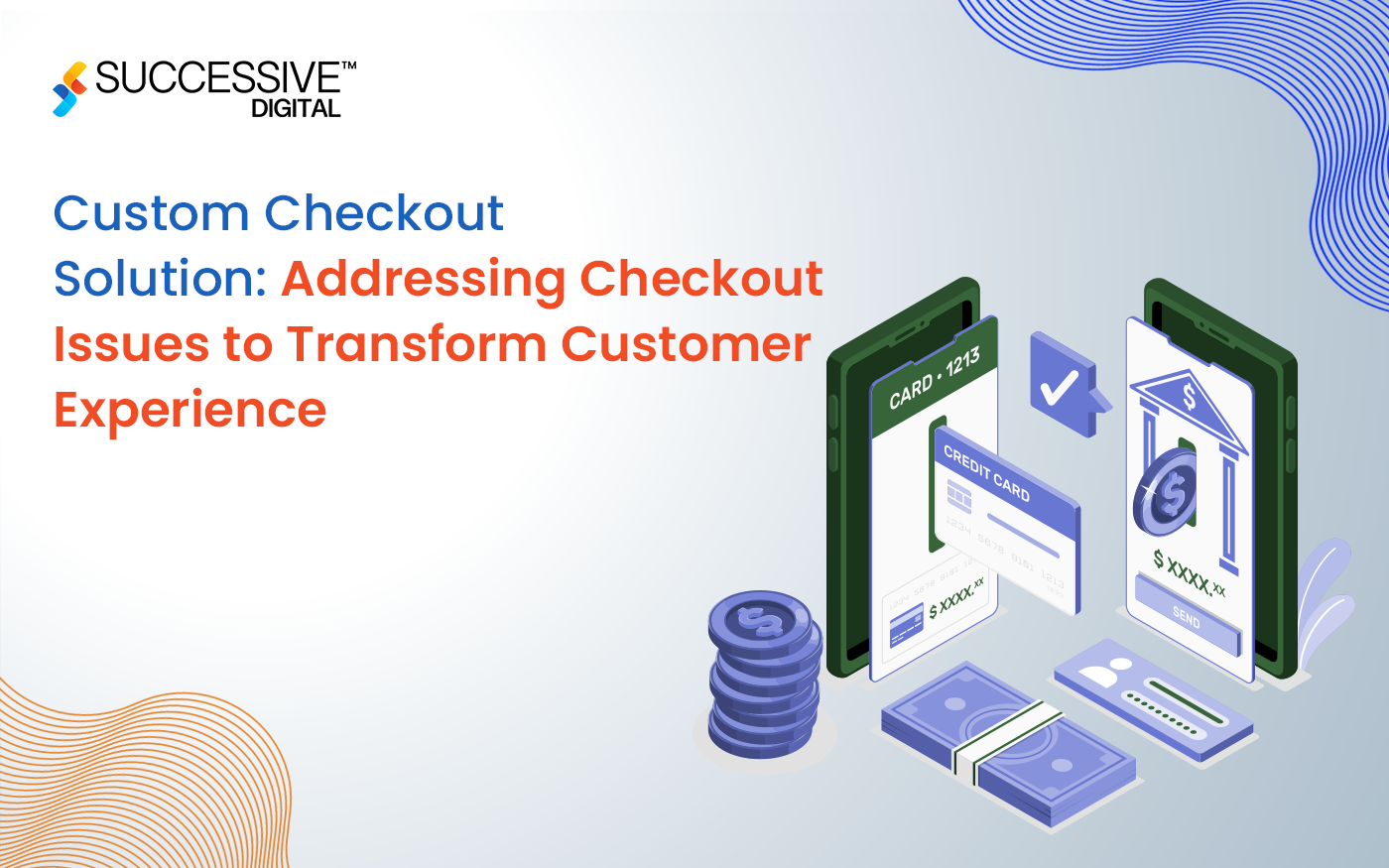In the rapidly evolving business space, digital enterprise ecommerce solutions are a frontier where organizations navigate to thrive and stay competitive. Ecommerce has emerged as a transformative force, reshaping traditional business models and redefining how enterprises engage with clients. With the ubiquity of online purchasing and the growing choice for digital transactions, companies are forced to embrace digital enterprise ecommerce platforms not merely as a method of selling products but as fundamental gear for optimizing their operational ecosystem.
The journey toward enterprise digital transformation is multifaceted and encompasses numerous components of business operations. Enterprises should now set up an online presence and streamline internal techniques, enhance customer engagement, and adapt to shifting market dynamics. At the core of this shift lies the imperative to optimize operations to ensure efficiency, agility, and scalability in a digitally driven market.
Digital enterprise ecommerce solutions function as the key driver of this undertaking, imparting a comprehensive suite of tools and technologies tailor-made to the unique needs of large-scale businesses. These answers provide a holistic framework for businesses to thrive in the digital age, from inventory management and supply chain optimization to customer relationship management and data analytics.
This blog delves deeper into how enterprise ecommerce app development companies help design transformative solutions to optimize enterprise operations, highlighting their impact beyond the digital storefront.
Streamlining Inventory Management
Streamlining stock management is pivotal for businesses grappling with numerous product ranges and fluctuating demand. Digital enterprise ecommerce solutions provide:
- Sophisticated inventory monitoring systems
- Permitting real-time tracking of inventory stages
- Computerized reordering
- Synchronization across more than one income channel
By centralizing inventory data and automating repetitive tasks, businesses mitigate the risk of stockouts, minimize extra inventory, conserve expenses, and ensure seamless order success. This optimization enhances operational performance and improves customer satisfaction by ensuring merchandise is consistently to be ready in stock when they order.
For instance, Amazon’s e-commerce platform relies heavily on advanced inventory management systems. Through data-driven algorithms and predictive analytics, Amazon optimizes its stock management to ensure merchandise is available while customers need it, thereby enhancing user delight and maximizing revenue.
-
Enhancing Customer Relationship Management (CRM):
Enhancing CRM via an enterprise ecommerce platform entails collecting comprehensive user data from diverse touchpoints. These solutions employ advanced analytics to analyze buying behavior, preferences, and interactions, allowing businesses to customize advertising and marketing efforts and enhance customer engagement.
By leveraging CRM functionalities, companies can deliver tailor-made experiences to their user base, offer personalized product recommendations, and provide proactive customer support. This deep know-how of clients fosters stronger brand loyalty, drives repeat purchases, and increases continuous engagement in the long run.
For instance, Salesforce Commerce Cloud provides a comprehensive suite of CRM tools designed mainly for e-commerce. By integrating consumer data from various touchpoints, organizations can create targeted advertising campaigns, personalized product hints, and proactive customer support, ultimately using better conversion costs and revenue.
-
Optimizing Supply Chain Management:
Businesses should leverage enterprise ecommerce app development solutions to optimize supply chain management (SCM) with advanced technology to enhance performance and responsiveness. These solutions are designed with a combination of advanced analytics, automation, and real-time monitoring to streamline sourcing, production, and distribution approaches. Brands can limit costs and accelerate time-to-marketplace by improving inventory visibility, forecasting, and logistics optimization.
For instance, Walmart, one of the world’s biggest retail outlets, utilizes sophisticated supply chain management systems to optimize its e-commerce operations. By enforcing technologies like RFID tagging and blockchain for traceability, Walmart improves stock accuracy, reduces stockouts, and improves order fulfillment efficiency, thereby gaining a competitive advantage in the market.
-
Empowering Data-driven Decision Making:
Empowering data-driven decision-making through an enterprise e-commerce platform involves harnessing large quantities of data generated across various operational channels. These solutions leverage advanced analytics to analyze user conduct, sales trends, and market dynamics, providing valuable insights to drive strategic decisions within the business ecosystem.
By leveraging predictive analytics and visualization strategies, brands can find opportunities, mitigate risks, and optimize general overall performance. Data-driven decision-making allows companies to refine advertising strategies, customize user needs, and allocate resources more successfully.
For instance, Shopify Plus, an e-commerce platform, offers advanced analytics that empowers businesses to tune key performance indicators (KPIs) and gain deep insights into customer choices. By leveraging statistics, companies can optimize pricing techniques, refine product offerings, and personalize advertising campaigns, which is central to improved profitability and aggressive advantage.
-
Facilitating Scalability and Flexibility
Facilitating scalability and flexibility via enterprise e-commerce solutions involves imparting a robust infrastructure and adaptable structure. These solutions offer scalable website hosting environments and modular frameworks that can effortlessly accommodate increased visitors, expand product catalogs, and evolve with enterprise needs as needed.

Whether scaling operations to meet seasonal needs or venturing into new markets, businesses can depend upon scalable ecommerce platforms to seamlessly alter and grow. With a blend of customization and integration abilities, enterprises can effortlessly comprise new functions, third-party applications, and emerging technology tools to stay ahead of the competitive curve.
For instance, Magento Commerce, which is under the Adobe umbrella, presents an adaptable and expandable ecommerce platform designed to meet the needs of huge-scale ecommerce enterprises. Businesses ranging from startups to multinational corporations can make use of Magento’s framework to enhance their ecommerce endeavors. This may also include incorporating extra capabilities, integrating with third-party software programs, or venturing into new international markets.
Conclusion
Enterprise ecommerce solutions serve as integral tool for businesses navigating the complexities of the digital marketplace. By optimizing operations through inventory management, customer relationship management, supply chain, data-driven decision-making, and scalability, empower brands to thrive in an ever-evolving landscape.
Through examples like Amazon, Salesforce, Walmart, Shopify Plus, and Magento Commerce, this blog highlighted the transformative effect of ecommerce solutions on companies of all sizes. As corporations continue to embrace digital transformation, investing in promising and scalable ecommerce solutions may be paramount for growth and fostering innovation.












